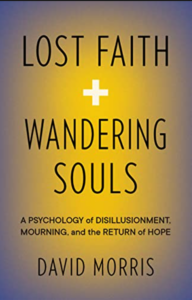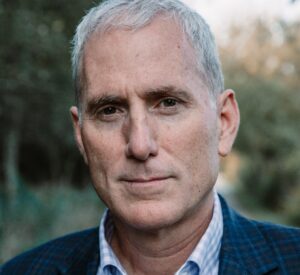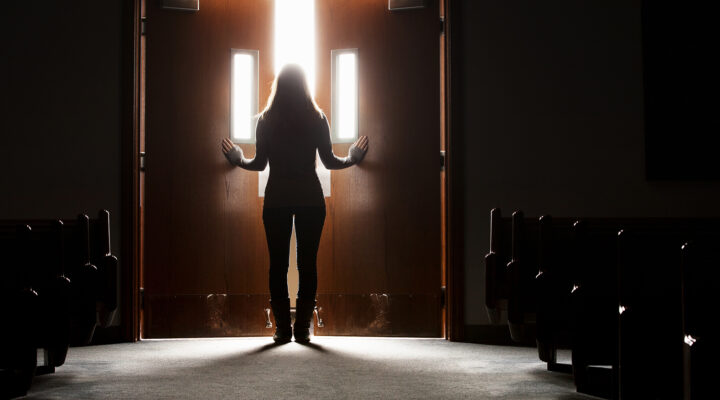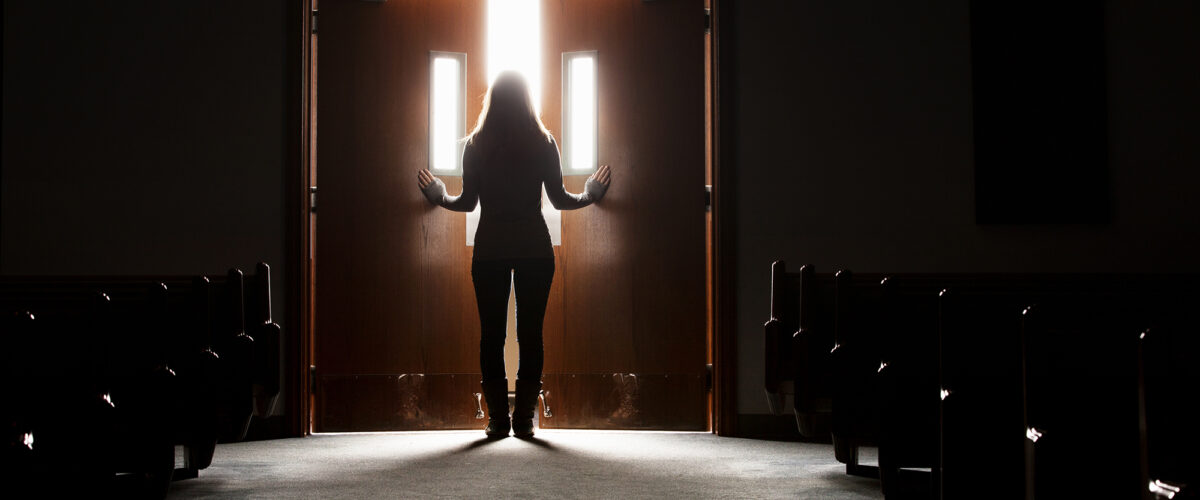The rise of Trumpism in U.S. churches and denominations is accelerating Americans’ disconnection from faith communities and leaving many bewildered and grief-stricken, according to the author of a new book about the psychology and hope of religious trauma.
Leaving church can be especially devastating because it involves so much more than theology and belief, including the loss of relationships and sacred symbols, said David Morris, a literary agent, publisher and author of Lost Faith and Wandering Souls: A Psychology of Disillusionment, Mourning, and the Return of Hope.
 Americans’ alienation from church didn’t begin with Donald Trump but certainly cascaded with his political ascendancy, Morris explained. “It’s always been a factor in religion in the U.S., where people become disillusioned and disenfranchised. What inspired me to write the book is I’ve been fascinated by the journey people take when they lose their faith and how they find their way forward.”
Americans’ alienation from church didn’t begin with Donald Trump but certainly cascaded with his political ascendancy, Morris explained. “It’s always been a factor in religion in the U.S., where people become disillusioned and disenfranchised. What inspired me to write the book is I’ve been fascinated by the journey people take when they lose their faith and how they find their way forward.”
While diagnosing and describing the ways people are setting aside religious practice, he moves toward a word of hope. But he does so through a psychological lens.
“Right up front I noticed that sense of loss — I noticed it in my own story. It’s not just the loss of an abusive community. The church has become more ineffectual as time goes on, and our rigid, Puritanical Protestant culture doesn’t work in a pluralistic society, and it doesn’t work in a society that values science.”
Morris said his own experience in evangelical traditions exposed him to that confusion and pain. Most recently, he and his wife left a congregation that “turned its back” on a minister for officiating his own son’s same-sex wedding.
“We have been like many, especially with the onset of extreme Trumpism culminating in Jan. 6 and the pandemic,” he said. “We count ourselves among those who are just worn out with religious practice in the United States and its ubiquitous collusion with conservative politics.”
“We count ourselves among those who are just worn out with religious practice in the United States and its ubiquitous collusion with conservative politics.”
But for Morris and many other Americans, leaving the church is complicated.
“We are Christian by our identity and it’s not something you can jettison. The stories, the values, the morals are still there. But the component that’s very different is that the community around Christianity is in such turbulence that we don’t want to connect with it. It has morphed into such a space that it’s broken and in need of deep repair.”
Morris said he also has had to ponder what faith and spirituality might look like going forward, adding that he knew from his Ph.D. work in the psychology of religion that the nation’s spiritual healing would have to involve the field of psychology.
 One place theology and psychology intersect is in mourning.
One place theology and psychology intersect is in mourning.
“Learning how to mourn something you have lost looks like a spiral process. It’s a back-and-forth process. You can go with the classic stages of grief, including denial and anger and acceptance. I come from a psychoanalytic approach to religion and psychology of religion, where you have to learn how to lean into those feelings and talk through those feelings.”
Taking that avenue through the pain can be daunting for Americans accustomed to instant gratification, he said. “It’s going to be a long, difficult process and it will be even more difficult if you are honest with those feelings. Freud described it as a ‘painstakingly slow’ process, but it’s even harder when you are trying to mourn a community and an idea.”
“It’s even harder when you are trying to mourn a community and an idea.”
Morris acknowledged that embracing psychology can be difficult for those emerging from theologically conservative traditions: “The field of psychology is a field that many evangelicals bounce off of. They don’t want to hear it. I have had one person use the term ‘psycho-heresy.’”
Those seeking a new understanding of their faith may draw on resources in addition to the Bible, he suggested. “The Bible is not the only place to find spiritual revelation. For a lot of people in the journey of faith loss, we tend to be stymied in the theological arguments and we need to remember that our own spiritual tradition inspires love and compassion and caring for the least of these without judgment, without condition. That’s what a psychology of religion does.”
Many in the U.S. are all too familiar with surveys that have found Americans increasingly identify as religiously unaffiliated. But often overlooked is how religious groups are challenged by those trends, and how they contribute to them, he said. “I think people underestimate the change that’s going on in the church in the United States in terms of the form and structure of religion.”
But that also is where the hope lies, he added. “In the mourning process, that sense of loss when you feel the anger and despair and disillusionment and the sadness, if you can be in touch with the sadness, it means you can again find a sense of hope and a longing for something sacred.”
Related articles:
Why I’m leaving my church: A theology of death | Opinion by Keith Hovey
Faith without ethics leave Christians and the church adrift, ethicist says
The role of seminaries in guiding ex-evangelicals like me through deconstruction | Analysis by Rick Pidcock


